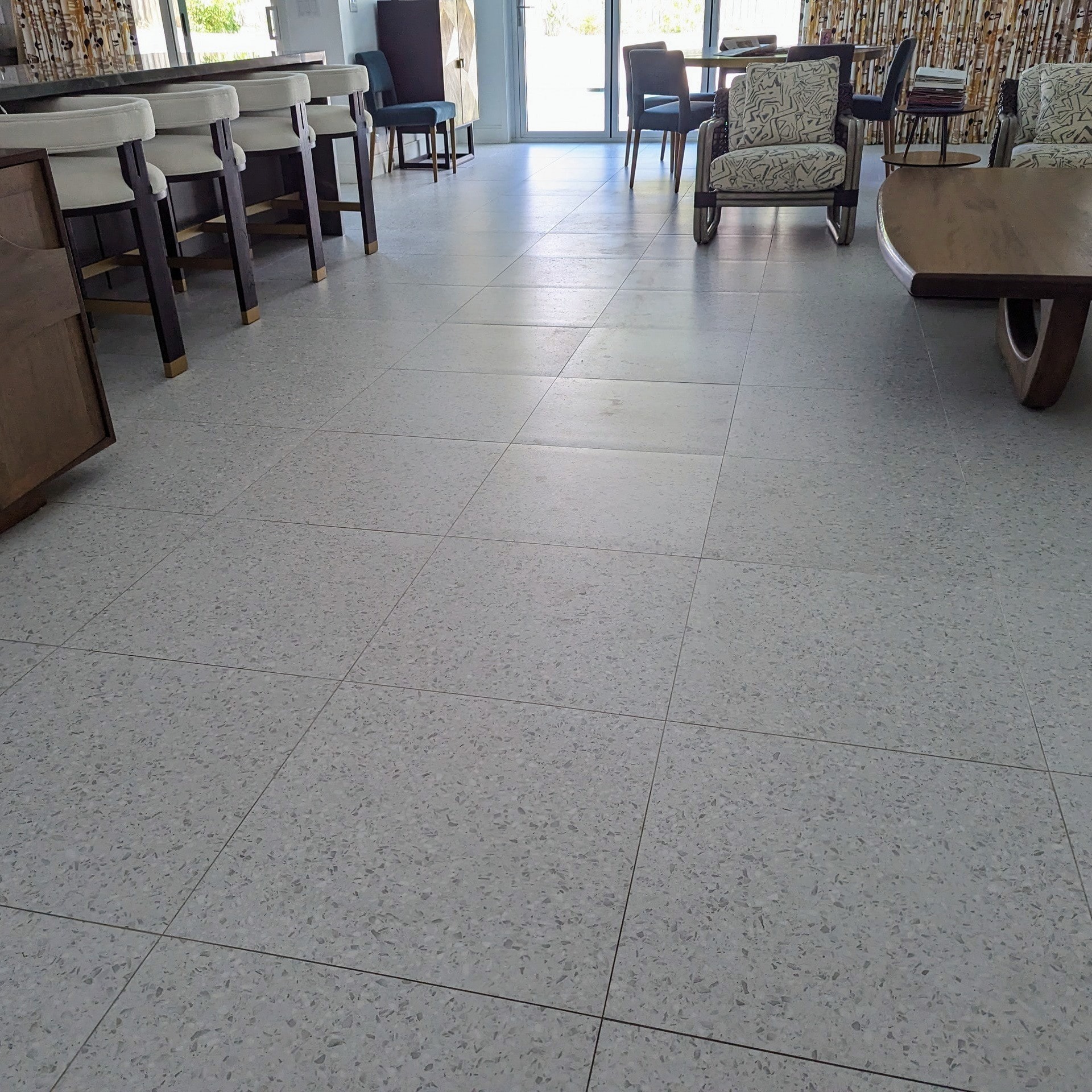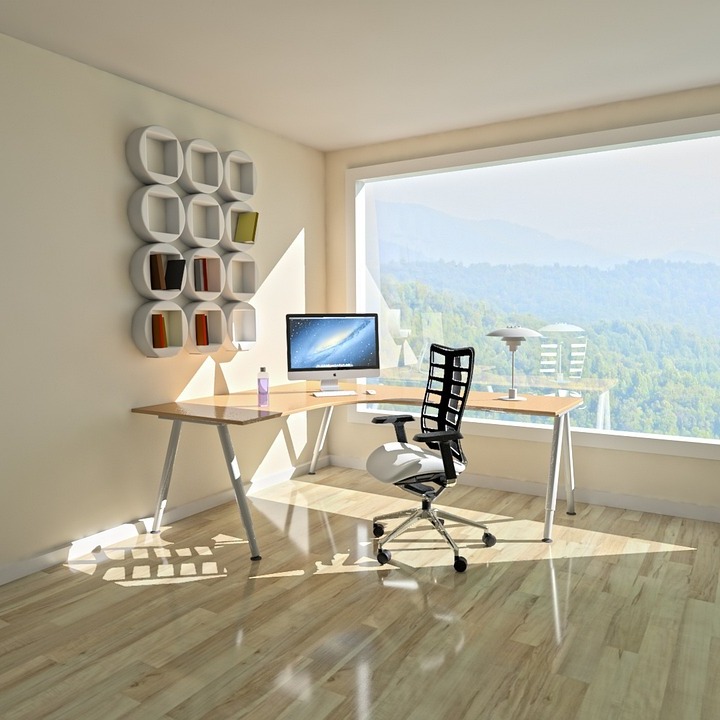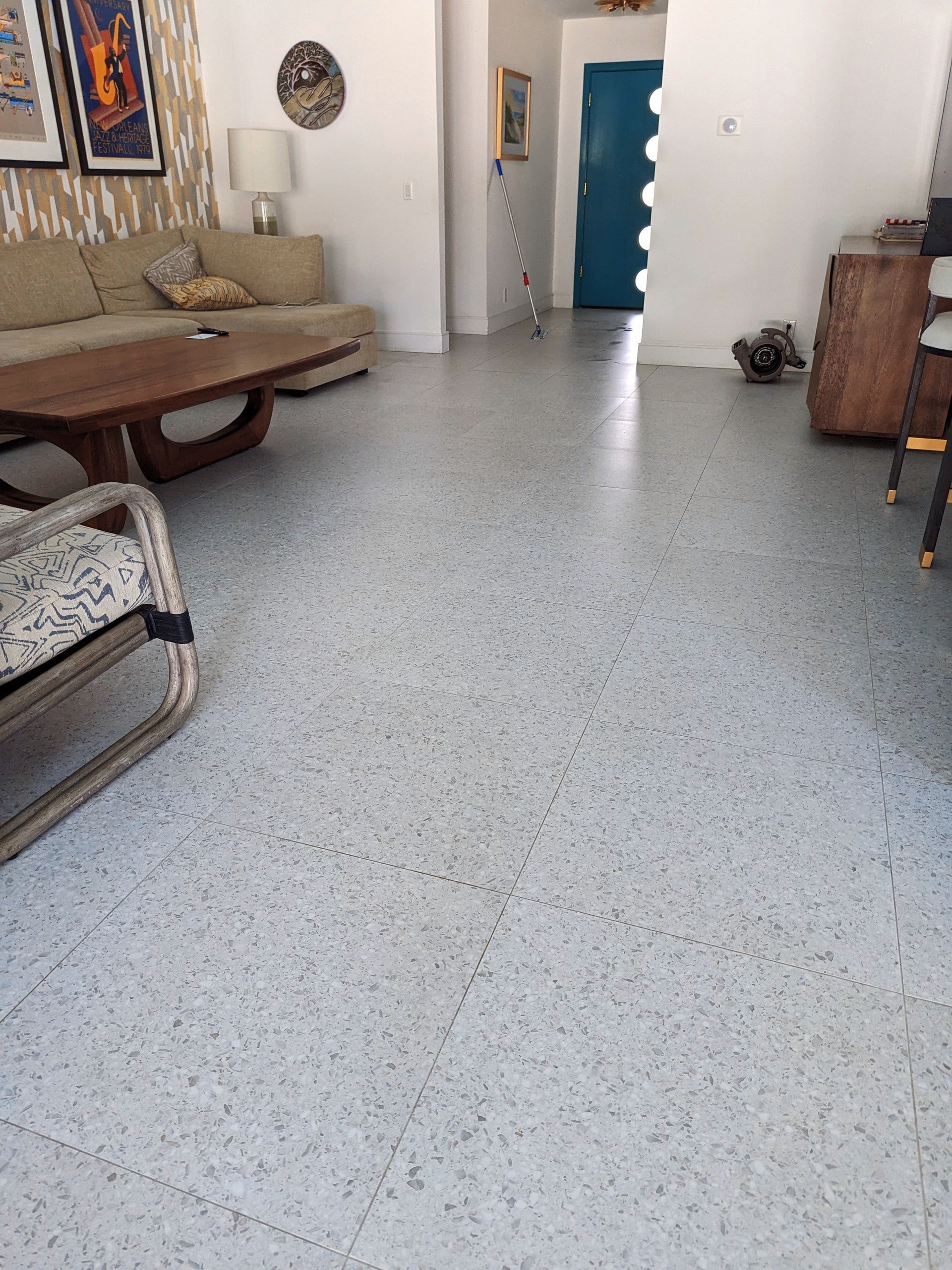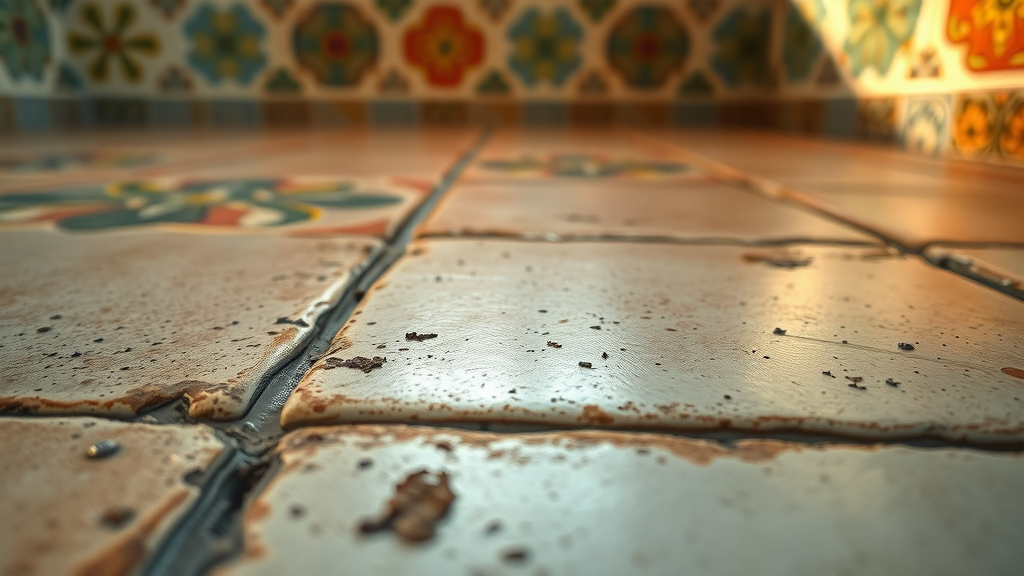Ever since the pandemic, more people have ended up being mindful of problems related to the spread of bacteria and disease, and as an outcome have increased expectations concerning tidiness, especially when it concerns returning to work or going into public places.
According to research done by Open Works in 2021, staff members were more concerned about sanitizing and cleaning in the office than they were in May of 2020 with one-third of workers saying, "inadequate cleaning is being done."
The survey went on to point out that "73% of workers expected their workplace to be cleaned up daily," while 62% of participants want their "work space disinfected daily."
The increased awareness around the health and cleanliness of indoor areas is here to remain.

As such, businesses will need to continue to remain on top of day-to-day cleaning routines, meet increased expectations, and attend to the increased scope of work for their cleaning teams.
Flooring Is a High-Touch Surface
The key to taking on these expectations is understanding some of the significant sources of contamination. Floor covering, for instance, is among the biggest high-touch surface areas and should not be ignored.
While the focus has mostly been on cleaning and sanitizing surface areas most regularly touched by hands, it is very important to note that floorings play a substantial function in overall building health and cleanliness.
An article published by the Institute of Inspection Cleaning and Restoration Certification (IICRC) notes "Flooring surface areas are in-fact high-touch surface areas and need to be included in regular cleaning as well as disinfection and sanitization protocols."
The IICRC goes on to point out that due to the severity of some pollutants that can be tracked on to floorings, it is necessary that floor cleaning routines consist of the appropriate vacuuming, scrubbing, and usage of sanitizers and disinfectants specified for each flooring type to help stop the spread of germs and pollutants throughout a space.

There are many other reasons consistently cleaning your floorings is essential. We have a list of the top five below.
1- Clean Floors Support Good Health
There are numerous things to think about when understanding why floor cleaning is so important to our health, but here are a few:
- Dust and contaminants can be brought in from the outdoors on shoes and clothes according to the CDC, these toxins can contain poisonous chemicals depending on where an individual has been or the environment around the building.
- These pollutants end up resting on surfaces, particularly floor covering, and can even be distributed into the air as people or equipment move throughout a space. This can cause the spread of germs, allergens, and even harmful impurities that make people sick.
- People who are sensitive to dust and allergens have an even harder time focusing and working in locations that are not consistently cleaned up-- this implies regular dusting, wiping down surface areas, and cleaning floors.

- Keeping communal spaces clean can help improve worker efficiency as well as performance by lowering absences associated with allergies and disease which can improve profitability.
2- Clean Floors Can Improve Indoor Air Quality
Floors can collect dust, dirt, and other particles that can impact the air quality inside structures. When people walk on dirty floors, these particles can become airborne, and people can inhale them, which can trigger respiratory problems.
Furthermore, floors that have fractures or creases can gather particles and supply places for mold to grow if not cleaned up regularly.
According to Pegasus Janitorial Services "Mold can significantly affect indoor air quality because it releases spores in the air. When this takes place, indoor air quality can suffer, affecting the general health of employees, clients, and business partners. It can be particularly troublesome for people who have chronic breathing conditions, such as allergies and asthma."

Consistent floor cleaning with the right procedures and cleaners can help enhance air quality and decrease the threat of air quality associated health issues.
3-Clean Floors Can Help Reduce the Spread of Germs and Bacteria
Research study continues to show that viruses can be transferred through the air. The Coronavirus is the most significant example, nevertheless, even the common cold can travel through the air we breathe.
Remarkably, these virus particles likewise settle to surface areas and can be redistributed when stirred back up due to touch. This is true for the particles that arrive at flooring too.
In reality, research done by the CDC demonstrates how coronavirus particles were tracked from patient treatment rooms to other parts of a health center on the shoes of doctors and nurses.
As ISSA explains "As the largest horizontal surface in a building, the floor is a breeding place for all types of bacteria and pollutants.

Proper cleaning, sanitizing, and decontaminating standards and regular flooring maintenance are crucial parts to successful infection-risk mitigation."
Using floor cleaning equipment in addition to proper sanitizers and disinfectants works to help eliminate infections on floorings thus lowering the possibility of them being dispersed back into the air.
4- Clean Floors Can Help Prevent Slip and Falls
Filthy or damp floorings can be slippery and increase the danger of slips and falls, which can lead to serious injuries. For example, if someone spills water or oil on the flooring, it can make the surface area extremely slippery.
Keeping your floors maintained and clean is vital to the safety of everybody in your building.
According to SFM, a workers compensation organization, some of the very best practices for keeping floorings clean and safe are utilizing consistent floor cleaning protocols that include:
- Recognizing the suitable cleaning tools (deck brushes, squeegees, and so on) and solvent (for instance, some solvents get rid of rust and scale, others consume oil)
- Identifying how typically the floors must be cleaned
- Completely training all workers who clean floors
Slip, trip and fall mishaps are the reason for various avoidable injuries every year and most of the time these are preventable with correct flooring care and upkeep.

5-Clean Floors Extend the Life of the Flooring
Dirt, sand, and other particles can scratch and harm floorings with time. By keeping floorings clean, you can avoid this damage and extend the life of the floor covering. For example, if you have hardwood floorings, dirt and sand can scratch the surface and make it look dull.
Furthermore, not keeping up with regular floor care, resulting in disrepair, can trigger injuries from broken or missing tiles or areas of flooring.
Routine flooring care helps you and your team monitor aging floor covering (meaning you can change and fix more routinely), it can help to keep water damage at bay with increased attention to problem locations and helps to make certain spills or leaks are tidied up immediately. All of this can help keep your floors looking brand-new and shiny.
Clean floorings are essential for maintaining a safe, healthy, and welcoming environment.

They can avoid mishaps, improve indoor air quality, minimize the spread of bacteria and germs, keep the appearance of the space, and prevent damage to the floors.
Note: Some of the included photos here are from an interior cleaning job we recently completed in Claremont, California. We're happy to share additional information that you may have by responding to comments on this article or by contacting Complete Interiors Carpet Cleaning at 909-936-9092.

 Add
Add 
 Add Row
Add Row 













Write A Comment